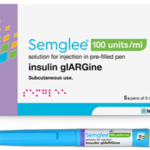FDA Approves Sage Therapeutics Zurzuvae For Postpartum Depression (PPD)

On August 04, 2023, the U.S. Food and Drug Administration (FDA) reached a groundbreaking decision by granting its approval for Zurzuvae (zuranolone), an oral medication specifically designed to address postpartum depression (PPD) in adults. This approval represents a significant milestone as it marks the first-ever oral treatment available for this major depressive condition, which commonly arises after childbirth and, in certain cases, during the later stages of pregnancy. Prior to this milestone, treatment options for PPD were restricted to intravenous injections administered by healthcare professionals within specific medical facilities.
PPD is a serious and potentially life-threatening condition that predominantly affects women, causing them to experience overwhelming feelings of sadness, guilt, and worthlessness. In severe instances, women with PPD may even experience distressing thoughts of self-harm or harm to their child. The impact of PPD is not limited to the mother alone; it can also disrupt the crucial bond between the mother and her infant, potentially leading to adverse effects on the child’s physical and emotional development. Recognizing the gravity of this condition, Dr. Tiffany R. Farchione, the director of the Division of Psychiatry in the FDA’s Center for Drug Evaluation and Research, stressed the significance of Zurzuvae’s approval. She believes that this new oral medication will serve as a beneficial treatment option for women grappling with extreme and potentially life-threatening emotional turmoil during the postpartum period.
PPD shares some common characteristics with other forms of depression, including persistent feelings of sadness, loss of interest in previously enjoyed activities, and a reduced ability to experience pleasure. Additional symptoms of PPD may include cognitive impairment, feelings of inadequacy, a pervasive sense of fatigue, and even thoughts of suicide.
The effectiveness of Zurzuvae in treating PPD among adults was substantiated through two rigorous randomized, double-blind, placebo-controlled, and multicenter clinical trials. These studies focused on women who met the criteria for a major depressive episode, as specified in the Diagnostic and Statistical Manual of Mental Disorders. Symptoms of PPD in these women commenced either during the third trimester of pregnancy or within four weeks after childbirth. In Study 1, participants received a once-daily dose of 50 mg of Zurzuvae or a placebo in the evening for a period of 14 days. In Study 2, the patients were administered another product containing a compound similar to 40 mg of Zurzuvae or a placebo, also for 14 days. The participants in both studies were closely monitored for at least four weeks after the 14-day treatment regimen. The primary endpoint for both trials was the assessment of the change in depressive symptoms, measured on day 15 using the total score from the 17-item Hamilton depression rating scale (HAMD-17). Notably, individuals in the Zurzuvae treatment groups exhibited significantly greater improvements in their depressive symptoms compared to those in the placebo groups. Even more encouraging was the finding that this positive treatment effect was sustained until Day 42, which was four weeks after the last dose of Zurzuvae.
As with any potent medication, the labeling for Zurzuvae includes a boxed warning, alerting patients that the medication may impair their ability to drive and undertake other potentially hazardous activities. Moreover, patients may find it challenging to gauge the extent of their impairment. To minimize any potential harm, patients are advised to refrain from driving or operating heavy machinery for at least 12 hours after taking Zurzuvae.
Common side effects associated with Zurzuvae use include drowsiness, dizziness, diarrhea, fatigue, nasopharyngitis (common cold), and urinary tract infection. It is essential to note that the use of Zurzuvae can potentially trigger suicidal thoughts and behavior, and it may also pose risks to a developing fetus. Consequently, women taking Zurzuvae are strongly advised to use effective contraception throughout the course of treatment and for one week following its completion.
The recommended daily dose of Zurzuvae is 50 mg, to be taken once daily for a duration of 14 days. Patients are advised to take the medication in the evening alongside a fatty meal.
The FDA expedited the approval process for Zurzuvae by granting it both Priority Review and Fast Track designation, highlighting the urgency and importance of this new treatment option for PPD. Sage Therapeutics, Inc. was the pharmaceutical company granted approval for the distribution of Zurzuvae.





